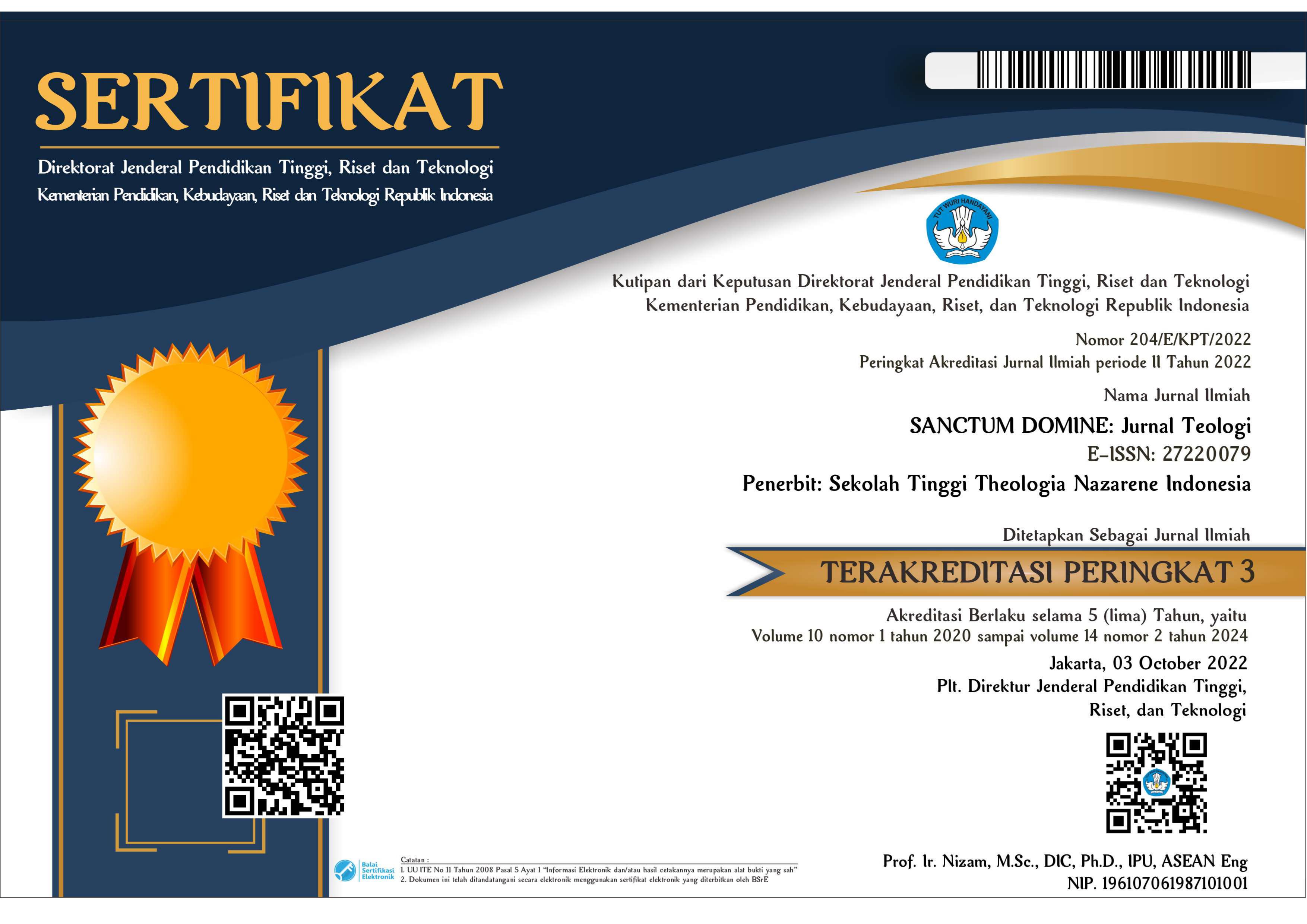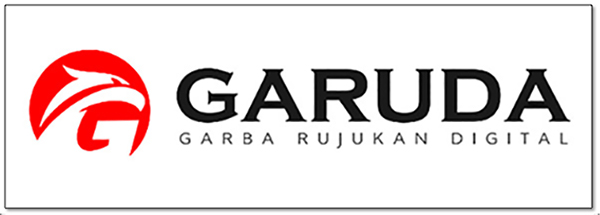Memaknai Profesionalisme Guru Pendidikan Agama Kristen Masa Kini
Abstract
Professionalism is a word that we often say when we see people working with all the skills and abilities that are qualified accompanied by a sense of full responsibility. Professionalism in work can be found in every profession anywhere, including in the teaching profession. By working professionally, a teacher will prioritize quality performance so that in every job the teacher will be seen as a very noble profession. In relation to Christian Religious Education teachers, Christian Religious Education teachers should carry out their duties with a full sense of responsibility, because they are called to be partners of God in educating the people. The teachers are God's servants who must continue to learn and emulate the Lord Jesus Christ as the Great Teacher who always cares for the people and leads them to the truth.
References
Brummelen, Harro Van, Berjalan Dengan Tuhan Di Dalam Kelas, Tangerang: Universitas Pelaita Harapan, 2003.
Homrighusen, Pendidikan Agama Kristen, Jakarta: BPK Gunung Mulia, 1994.
Imron, Ali, Pembinaan Guru Di Indonesia, Jakarta: Dunia Pustaka, 1995.
Ismail, Andar, Ajarlah Mereka Melakukan, Jakarta: BPK Gunung Mulia, 2000.
Kunandar, Guru Profesional, Jakarta: PT. Raja Grafindo Persada, 2007.
Masalah manajemen pendidikan di Indonesia, Jakarta: Departemen Pendidikan dan Kebudayaan Ditjen Dikdasmen - Dik menum.
Mujtahid, Pengembangan Profesi Guru, Malang: UIN-Maliki Press, 2011.
Mulyasa, Menjadi Guru Profesional, Bandung: PT. Remaja Rosdakarya, 2007.
Nurdin, Syafrudin, Guru Profesional Dan Implementasi Kurikulum, Jakarta: Quantum Teaching, 2005.
Sahertian, Piet A., Profil Pendidik Profesional, Yogyakarta: Andi Offset, 1994.
Semiawan, Conny R., Penerapan Pembelajaran pada Anak, Jakarta: Indeks, 2009.
Sidjabat, B.S., Mengajar Secara Profesional, Bandung: Yayasan Kalam Hidup, 2011.
Sudarwan, Profesionalisasi dan Etika Profesi Guru, Jakarta: CV. Alfabeta, 2010.
Sukirno, Pedoman Kerja Komite Sekolah, Jakarta: Pustaka Widyatama, 2006.
Tambunan, Elia, PAK dalam Masyarakat Multikultural, Yogyakarta: Ilumination Publising, 2011.
Undang-Undang Republik Indonesia No. 14, Tahun 2005 tentang Guru dan Dosen, Jakarta: CV. Laksana Mandiri, 2006.
Usman, Uzer, Menjadi Guru Profesional, Bandung: PT. Remaja Rosdakarya, 2002.
Uzman, Moh. Uzer, Menjadi Guru Profesional, Bandung: Remaja Rosdakarya, 2001.
Copyright (c) 2020 SANCTUM DOMINE: JURNAL TEOLOGI

This work is licensed under a Creative Commons Attribution-NonCommercial-ShareAlike 4.0 International License.
Copyright:
SANCTUM DOMINE: Jurnal Teologi will validate, produce, disseminate, and act as steward in the long-term curation of every article published. In order to achieve this, the author typically requires a transfer or “assignment” of the copyright in the article. As is the case for open access publishing, the author (or copyright owner of the article, if different) signs an author publishing agreement. The agreement incorporates the necessary transfer of copyright.
After assigning copyright, the author will still retain the right to:
- Be credited as the author of the article.
- Own and exercise any trademark or patent rights held by author and addressed in the article.
- Make printed copies of the article to use for a lecture or class that the author leading on a non-commercial basis.
- Share the article with friends, colleagues and influential people the author would like to read the work.
- Present the article at a meeting or conference and distribute printed copies of the article on a non-commercial basis.
License:
This work is licensed under a Creative Commons Attribution-NonCommercial-ShareAlike 4.0 International License.
You are free to:
- Share — copy and redistribute the material in any medium or format
- Adapt — remix, transform, and build upon the material
- The licensor cannot revoke these freedoms as long as you follow the license terms.
Under the following terms:
- Attribution — You must give appropriate credit , provide a link to the license, and indicate if changes were made . You may do so in any reasonable manner, but not in any way that suggests the licensor endorses you or your use.
- NonCommercial — You may not use the material for commercial purposes .
- ShareAlike — If you remix, transform, or build upon the material, you must distribute your contributions under the same license as the original.
- No additional restrictions — You may not apply legal terms or technological measures that legally restrict others from doing anything the license permits.
Notices:
You do not have to comply with the license for elements of the material in the public domain or where your use is permitted by an applicable exception or limitation .
No warranties are given. The license may not give you all of the permissions necessary for your intended use. For example, other rights such as publicity, privacy, or moral rights may limit how you use the material.




8.png)









